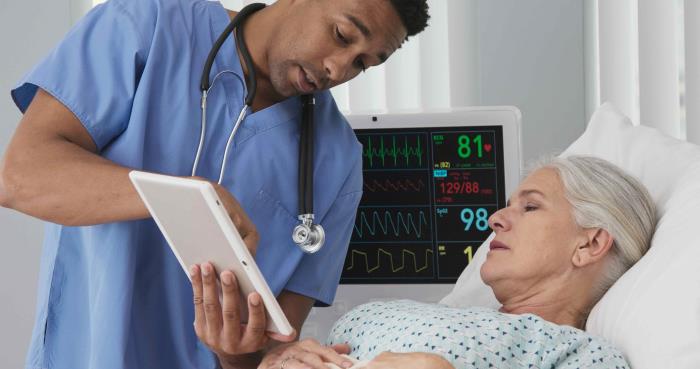Recovering from heart valve replacement surgery is a gradual process that requires patience, adherence to medical advice, and lifestyle adjustments. The recovery journey involves healing from the surgery, regaining physical strength, and adapting to any new routines or medications. Understanding the key aspects of recovery can help ensure a smoother transition back to everyday life while optimizing heart health.
Medical disclaimer: This content is for general awareness and does not replace a doctor’s consultation. For diagnosis or treatment decisions, consult a qualified specialist.
How to Adapt to Physical Activity Safely
Physical activity is an essential component of recovery, but it must be approached with care. Patients are encouraged to start with light activities such as walking, gradually increasing intensity under the guidance of their healthcare provider. Avoiding strenuous activities during the early weeks of recovery is crucial to prevent undue strain on the heart. Cardiac rehabilitation programs can provide tailored exercise plans to ensure safe and effective physical activity.
Dietary Changes to Support Heart Health
A heart-healthy diet plays a vital role in recovery and long-term well-being. Patients are often advised to focus on a balanced diet rich in fruits, vegetables, whole grains, lean proteins, and healthy fats. Reducing sodium, trans fats, and added sugars is equally important to manage blood pressure and cholesterol levels. Proper hydration and portion control further contribute to maintaining optimal heart health after surgery.

The Importance of Regular Medical Checkups
Post-surgery follow-up appointments are essential to monitor the success of the heart valve replacement and detect any potential complications early. These checkups may include physical examinations, blood tests, and imaging studies like echocardiograms to assess heart function. Adhering to the prescribed schedule for medical visits helps ensure a steady recovery and provides an opportunity to address any concerns with the healthcare team.
Managing Stress for a Healthy Heart
Stress management is a critical yet often overlooked aspect of recovery. Chronic stress can negatively impact heart health by increasing blood pressure and heart rate. Incorporating relaxation techniques such as deep breathing, meditation, or yoga can help patients manage stress effectively. Support from family, friends, or counseling services also contributes to emotional well-being during the recovery phase.
Resuming Daily Activities After Surgery
Returning to normal daily activities, such as work, household chores, or hobbies, should be done gradually and based on individual recovery progress. Patients should listen to their bodies and avoid overexertion. Driving and lifting heavy objects are usually restricted for a few weeks post-surgery, so consulting with a doctor before resuming such activities is important.
Role of Cardiac Rehabilitation in Recovery
Cardiac rehabilitation is a structured program designed to aid recovery and improve overall heart health after surgery. It combines supervised exercise, education on heart-healthy living, and emotional support. By participating in cardiac rehabilitation, patients can regain strength, reduce the risk of future heart problems, and enhance their quality of life.
Monitoring and Managing Symptoms Post-Surgery
After heart valve replacement, it’s crucial to monitor symptoms like shortness of breath, chest pain, or irregular heartbeats. Regular check-ups and at-home monitoring tools can help detect any abnormalities early.
Importance of Medication Adherence
Taking prescribed medications as directed is vital for preventing complications such as blood clots or infection. Keep a medication schedule and consult your doctor before making any changes.
Tips for Maintaining a Healthy Weight
Maintaining a healthy weight reduces strain on your heart. Focus on a balanced diet with lean proteins, whole grains, fruits, and vegetables, and engage in light physical activity as advised by your doctor.
Avoiding Complications: Best Practices for Post-Surgery Care
Follow your doctor’s post-surgery instructions carefully, including wound care, physical activity guidelines, and dietary recommendations, to minimize the risk of infection or valve-related complications.

Recognizing Warning Signs That Require Medical Attention
Seek immediate medical help if you notice symptoms like swelling in the legs, persistent fever, unexplained fatigue, or signs of infection near the surgical site.
Emotional Well-Being After Heart Valve Replacement
It’s common to experience anxiety or depression after surgery. Counseling, support groups, or speaking with a mental health professional can help you cope with emotional challenges.
Traveling Safely with a Replaced Heart Valve
When traveling, carry your medical records and information about your valve replacement. Stay hydrated, avoid prolonged immobility, and consult your doctor about any necessary precautions.
Managing Work and Career Post-Surgery
Returning to work depends on the nature of your job and your recovery progress. Light-duty work may be resumed in a few weeks, while physically demanding jobs may require more time.
Physical Limitations and How to Overcome Them
Post-surgery, you may experience temporary physical limitations. Gradually increase your activity level under medical guidance, and consider cardiac rehabilitation to regain strength.
Building a Support System for Recovery
Having a strong support system of family, friends, or support groups can improve your recovery process by providing emotional and practical assistance.
Understanding the Long-Term Prognosis After Surgery
With proper care and regular monitoring, most patients lead a normal life after heart valve replacement. Lifestyle modifications and follow-up appointments are essential for long-term success.
Technology and Tools to Monitor Heart Health at Home
Wearable devices and home monitoring tools can help track heart rate, blood pressure, and other vital signs. Share this data with your healthcare team for proactive care.
Understanding the Risks of Delaying Heart Valve Replacement Surgery
Discover why timely heart valve replacement surgery is crucial. Delaying the procedure can lead to severe complications, including heart failure and decreased quality of life. This article discusses the risks of postponement and emphasizes the importance of timely intervention.
Myths and Facts About Life After Heart Valve Replacement
Myth: Physical activity should be avoided after surgery.
Fact: Regular, moderate exercise is encouraged to strengthen your heart.
Myth: A valve replacement guarantees no future heart issues.
Fact: Continued care and monitoring are crucial for maintaining heart health.
Best Heart Valve Replacement Surgeons in India
The Best Heart Valve Replacement Surgeons in India are highly skilled in complex valve procedures, offering personalized care to help patients achieve successful outcomes and enhanced heart health.
FAQs
How long does it take to recover from heart valve replacement?
Recovery typically takes 6-12 weeks, but it varies depending on individual health and the type of valve replacement surgery.
Can I return to normal activities after heart valve replacement?
Yes, most patients resume normal activities, but strenuous activities should be avoided until cleared by your doctor.
What foods should I avoid after heart valve surgery?
Limit sodium, trans fats, and sugary foods. Focus on a heart-healthy diet rich in fruits, vegetables, and whole grains.
How can I stay active without straining my heart?
Engage in light activities like walking or yoga. Follow a cardiac rehabilitation program for tailored exercise recommendations.
Is emotional support necessary after heart valve replacement?
Yes, emotional support plays a key role in recovery. Seek help if you feel overwhelmed, anxious, or depressed.
Explore the Best Heart Care Resources in India
Find some of the top cardiologist, surgeons and the best heart hospitals in India
Best Heart Hospitals in India
Choosing the right hospital is crucial for successful heart treatments. If you want to explore trusted options, check the list of Best Heart Hospitals in India offering world-class facilities, advanced cardiac care units, and experienced teams for both simple and complex procedures.
Best Cardiologists in India
Finding the right cardiologist can make a huge difference in early diagnosis and long-term heart health. If you are looking for the Best Cardiologists in India, see this curated list of experts who specialize in preventive care, interventional cardiology, and complex heart disease management. Check the full list Best Cardiologists in India.
Best Cardiac Surgeons in India
If you are planning for heart surgery and need top-level expertise, we recommend exploring the Best Cardiac Surgeons in India. These surgeons have a proven record in performing bypass surgeries, valve replacements, and minimally invasive heart operations with excellent outcomes.
Get more indepth information on Cardiology treatments and their costs.
Conclusion
Your cardiology health deserve the best care. Explore the links above to learn more about the top cardiac hospitals and cardiac surgeons in India.
Preventing infection after heart valve surgery is crucial for a successful recovery. Best practices include maintaining proper hygiene, such as frequent handwashing and keeping the incision site clean and dry. Patients should follow their healthcare provider's instructions for wound care and take prescribed antibiotics as directed. Avoiding contact with sick individuals and attending all follow-up appointments are also essential. These measures help reduce the risk of post-surgical infections and promote healing. Preventing Infection After Heart Valve Surgery: Best Practices
Heart valve disease can significantly affect daily activities by causing symptoms such as shortness of breath, fatigue, chest pain, and dizziness. These symptoms can limit physical exertion and reduce the ability to perform routine tasks. Managing heart valve disease through medical treatment, lifestyle changes, and regular monitoring is essential to improve quality of life and maintain daily functionality The Impact of Heart Valve Disease on Daily Activities
Delaying heart valve replacement surgery can lead to serious health complications. As the valve dysfunction progresses, the heart has to work harder, which can cause symptoms like shortness of breath, fatigue, chest pain, and dizziness to worsen. Over time, this increased strain can result in heart failure, arrhythmias, pulmonary hypertension, and even stroke. Early intervention is crucial to prevent irreversible damage and improve long-term outcomes. Understanding the Risks of Delaying Heart Valve Replacement Surgery